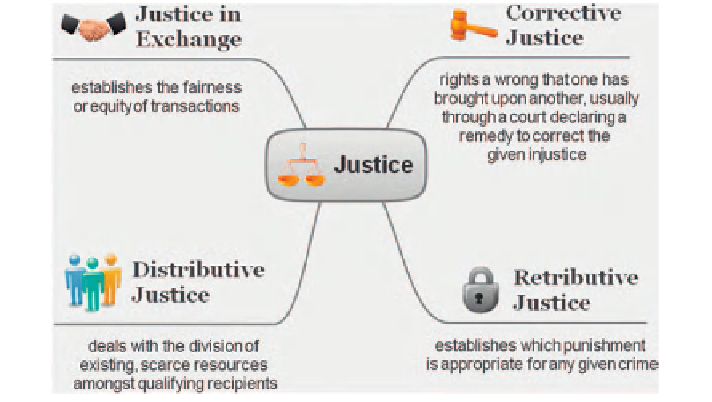Biology Reference
In-Depth Information
Fig. 2.1
Realms of Justice
According to human rights advocates, lack of access to health care is an injus-
tice (Pogge
2008
), and we agree with this assessment. However, as already noted
of unfair exchange. While all human beings have the right of access to health
care, a right that has to be resolved through distributive justice mechanisms,
it is an
added
injustice to take something from someone without fair benefit
sharing. The injustice here is type 2 exploitation, as described above. If no fair
exchange occurs, the exploiting party gains disproportionately. Scientific research
which uses resources from vulnerable populations in developing countries with-
out providing local access to the resulting benefits, for instance, represents such
exploitation.
This understanding of benefit sharing in terms of justice in exchange came to
prominence with the adoption of the Convention on Biological Diversity in 1992
and the introduction of post-study obligations in the 2000 Declaration of Helsinki
(see
Chap. 3
).
In many developing countries, research participants and their communities
do not derive any of the benefits of scientific research, or do so to a very limited
extent. Since it is exploitative to use individuals and communities for the creation
of benefits without their receiving any of them, we must find ways to share the
benefits of scientific progress in a fair manner with research participants (individu-
als and their communities).
A number of benefit-sharing schemes have been proposed. Some work on this
subject has focused on profit sharing (see, for example, Barclay
2008
), but, as the
list below indicates, profit sharing is not the only available method of sharing the
benefits of scientific research. In fact, while many people seem to associate benefit

